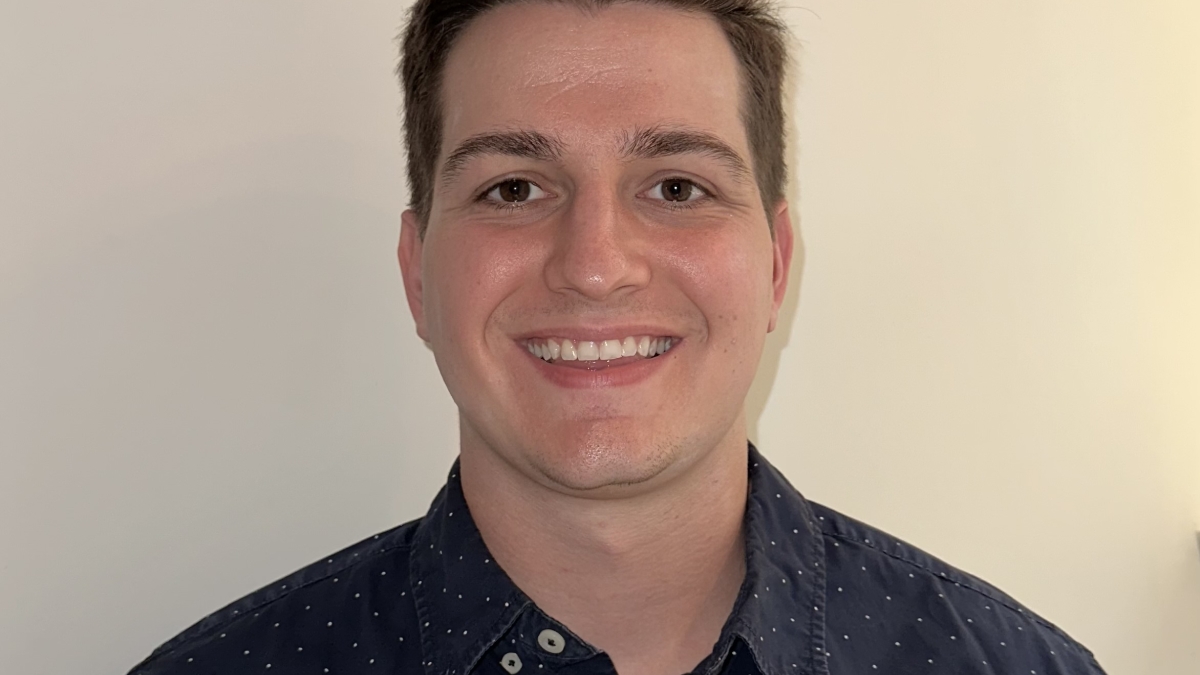Editor's note: This story is part of a series of profiles of notable spring 2023 graduates.
Wyatt Appel, a Barrett, The Honors College student who graduated with degrees in business (law and global politics) from the W. P. Carey School of Business this May, has been accepted into Harvard Law School.
Appel says his aim is to become a public interest attorney and wants to be involved in impact litigation and policy work concerning human rights and youth advocacy. His long-term goal includes operating an appellate litigation practice in Arizona.
While in his final semester at Arizona State University, Appel worked on an OURS (Online Undergraduate Research Scholars) project studying the implications of Arizona law SB 1151, which lifts driver license suspensions for unpaid civil traffic fines.
Through his research with Tempe Municipal Court, Appel found that the number of unpaid fines increased after the implementation of SB 1551. These unpaid traffic fines were mostly sourced from residents in Phoenix metropolitan areas such as Chandler, Gilbert and Scottsdale, and a majority of those who failed to pay lived in areas that had a median household income of less than $65,000.
On top of his OURS project, Appel was a TA for ASU lecturer Gregory Broberg’s justice studies courses in the School of Social Transformation.
"I’m incredibly thankful to Dr. Broberg for the opportunity to engage in research that has meaningful, real-world implications for our community, and for the chance to support other students with such studies," Appel said. "It was tremendous preparation and inspiration for the kind of justice-oriented legal and policy-based work that I am hoping to take part in while at Harvard Law School and beyond."
Here, he talks a little more about his time at ASU.
Question: What’s something you learned while at ASU — in the classroom or otherwise — that surprised you or changed your perspective?
Answer: During my time at ASU, I volunteered with an organization called the International Rescue Committee at their welcome center, a facility that provides humanitarian assistance — food, clothing, etc. — to people seeking asylum. Through my time serving meals there, I came to understand in part how the asylum process worked — in particular, how it falls short in delivering the support so many families need. It and other experiences like it are what propelled me to apply to law school.
Q: Why did you go to ASU?
A: Going to ASU was a chance to remain close to my family. I’m from Mesa, Arizona, with Tempe a pretty short drive away. ASU also held a lot of sentimental value for me — both of my parents graduated from there, and I grew up going to ASU games and other events on campus. I was able to receive a nice scholarship as well, so it just made a lot of sense.
Q: What’s the best piece of advice you’d give to those still in school?
A: Get involved. Whether that’s through volunteering, internships or working, immerse yourself in real-world experiences. Not only will they provide you with the practical skills you’ll need, but they’ll allow you to uncover what you’re truly passionate about.
Q: What was your favorite spot on campus, whether for studying, meeting friends or just thinking about life?
A: Hayden Library was a favorite of mine. I used to grab a drink from the Starbucks at the (Memorial Union) and then find a quiet spot in the library to go through my work.
Q: What are your plans after graduation?
A: I’ll be attending Harvard Law School to earn my JD. Eventually, I’m looking to become a public interest attorney. Specifically, I’d like to be involved in impact litigation and policy work concerning human rights and youth advocacy, working either for the government or a nonprofit organization like the ACLU. In the long run, I'm hoping to operate an appellate litigation practice focused on these issues in Arizona.
Q: If someone gave you $40 million to solve one problem on our planet, what would you tackle?
A: Educational inequality in Arizona. Through learning from my parents’ experiences as teachers and my own work as a Boys and Girls Club instructor, so many of our students in Arizona do not have access to the resources they need to succeed. Arizona consistently ranks among the bottom in the country for K–12 education, and the pandemic only made things worse. With funding for tutoring assistance for students that otherwise could not afford it, salary increases for teachers and other such initiatives, we could finally provide the investment to students and their families that they deserve.
More Law, journalism and politics

Exhibit uses rare memorabilia to illustrate evolution of US presidential campaigns
After one of the most contentious elections in history, a new museum exhibit offers a historical perspective on the centuries-old…

TechTainment conference explores the crossroads of law, technology, entertainment
What protections do writers, actors, producers and others have from AI? Will changing laws around name, image and likeness (…

How to watch an election
Every election night, adrenaline pumps through newsrooms across the country as journalists take the pulse of democracy. We…
